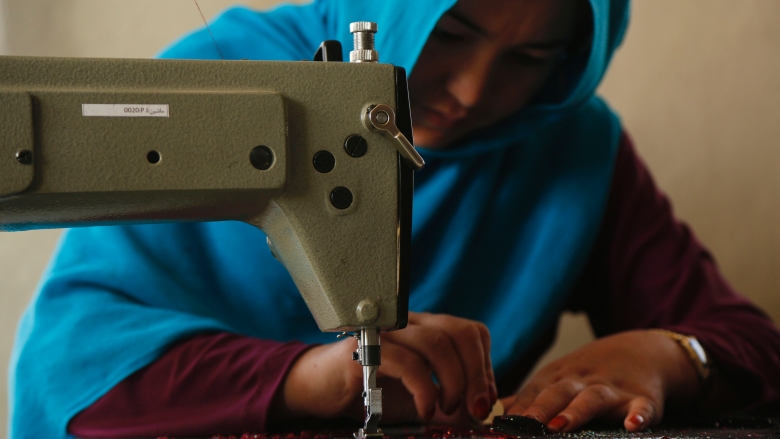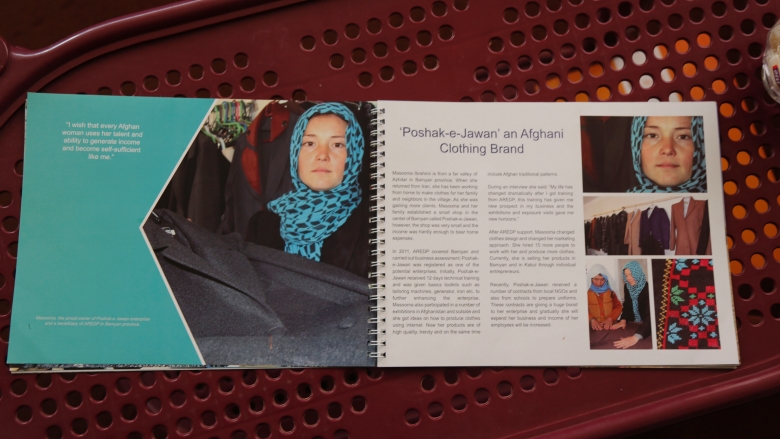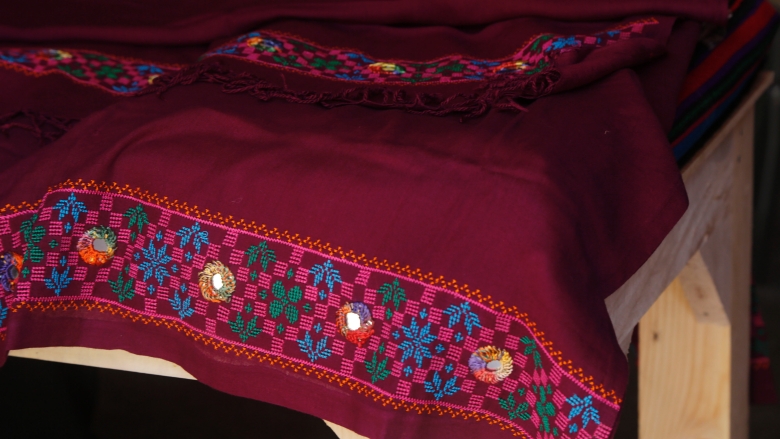BAMYAN CITY, Bamyan Province – Masoma Alizada, 26, is showing the clothes made in her factory, Jawan Apparel Manufactory – in Dari (کارگاه تولیداتی پوشاک جوان), to customers in her shop. She describes the quality of each piece of clothing and tells them the price so they could make choices within their budgets.
In addition to the factory, Masoma runs the recently built shop, which carries the clothing she manufactures, including long jackets and embroidered blouses, for both women and men. She usually receives about 25 customers a day.
Her shop, where she also sells handicraft, is located in the Women’s Market in Bamyan city, the first women’s market in the city established by the governor of Bamyan in 2014. There are 25 shops in the market, some still under construction, run only by women.
Six years ago, Masoma and her family returned to Afghanistan from Iran, where they were refugees, and came directly to Bamyan city. Within a few months, she had set up the first factory run by a woman in Bamyan Province.
“In order to create employment opportunities for women, I started women’s tailoring first. Now I am very happy about my work, which has expanded remarkably,” says Masoma, who started with just two sewing machines at home. In the beginning, she accepted orders for womenswear and her work was limited to her neighborhood. Today, her apparel factory employs eight women and one man as full time employees, and 30 women working part time as embroiderers from their homes.
Masoma was able to develop her business largely as a result of support from the Afghanistan Rural Enterprise Development Program (AREDP). Started in 2010, AREDP is a program of the Ministry of Rural Rehabilitation and Development (MRRD), which receives funding support from the International Development Association (IDA), the World Bank Group’s fund for the poorest countries, and the Afghanistan Reconstruction Trust Fund (ARTF).
AREDP aims to enhance economic mobilization and activities by organizing the rural poor into Savings Groups, Village Savings & Loan Associations, and Enterprise Groups. The project provides technical support to these groups so as to build a financial discipline through savings and internal lending practices, and technical support to enterprises.
The program works towards strengthening market linkages and value chains for rural enterprises across the country by providing technical support to Enterprise Groups (63 percent female), and small and medium enterprises (14 percent female), selected for their potential as key drivers of rural employment and income generation.
In Bamyan Province, AREDP works in Bamyan city, and Yakawlang, Saighan, and Panjab districts. It covers 299 small and medium enterprises, and 1,033 Savings Groups, creating employment opportunities for over 12,500 people



